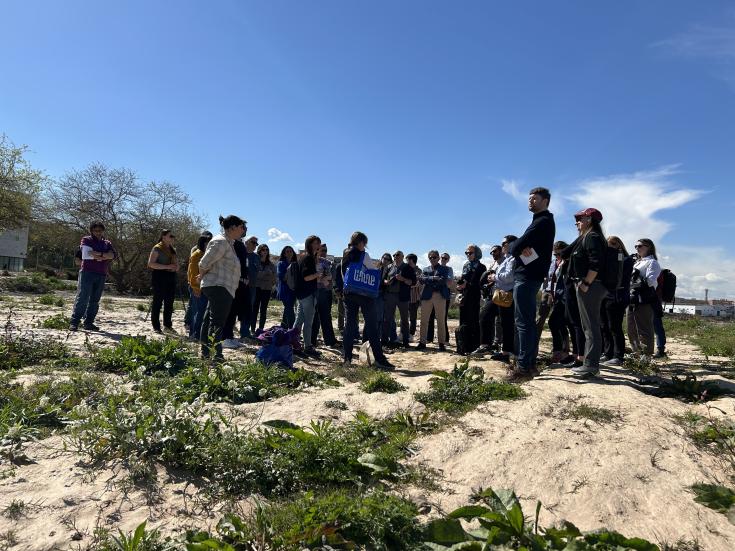Visiting Valencia
As RIWET partners continue to learn from each other, the Limne Foundation and Valencia Provincial Council jointly hosted a meeting on water governance in the Valencia Region at Limne's office in Quart de Poblet, on March 25th & 26th.
Following a warm welcome by Mayor Cristina Mora, Ramon Bellido from the Valencia Provincial Council, briefly introduced both host organizations. He then discussed, in depth, the recent DANA floods. the immense impact in the region and the challenges for territorial planning and flood risk management.
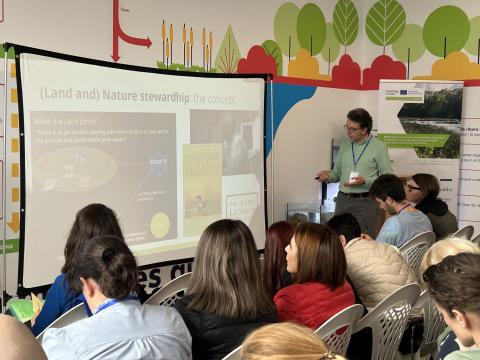
Stewardship
Jordi Pietx, a consultant from Limne, led a workshop on land stewardship, a management technique used by many NGOs in the region and supported by Spanish legislation. Jordi explained the concept of stewardship, its history and how Spanish entities specializied in this area. This has gradually spread to other countries over time. Adapting the concpet for aquatic ecosystems, primarily rivers and wetlands, was also reviewed.
Eva Beltrán, (Júcar Basin Authority) explained how public administrations use land stewardship agreements to foster collaboration, aiming to enhance public awareness and knowledge about the services these ecosystems provide, thus cultivating active citizen participation in the protection, conservation and improvement of our natural environment. It's also valuable for coordinating with other administrations, particularly with municipal governments.
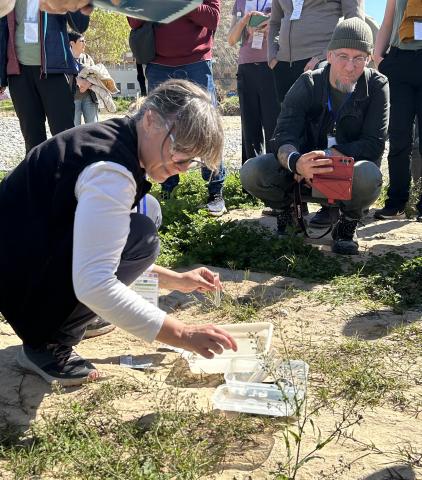
Water quality
RIWET partners watched a demonstration of Limne's river project (Projecte Rius), where hundreds of volunteers and thousands of schoolchildren have been analyzing chemical and biological parameters to determine river water quality since the late 90s. It is an excellent example of citizen science in practice, particularly the assessment of the river's ecological status based on the presence of macro-invertebrates. By helping to analyze various samples from different sources, we saw firsthand the extent of the damage caused by the October floods.
Changing plans
Returning indoors, Pablo Montemayor, from the Quart de Poblet Municipality, discussed local river restoration projects and the link to land/fluvial stewardship. He told of the need to reformulate plans as a result of extensive flood damage. With 'before and after images' Pablo illustrated the catastrophic impacts - an emotional moment for many in the room - and highlighted the municipality's participation measures, including a citizen river council, robust environmental education and a volunteer programme.
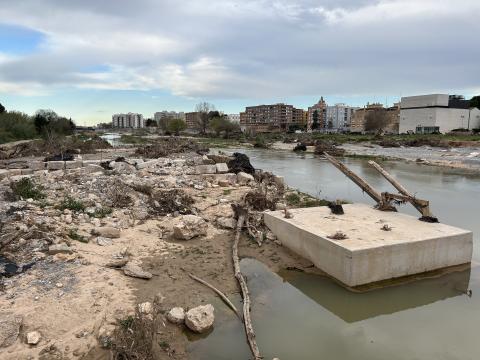
Financing ecological projects
Finally, Jose Luis Ramos and Felipe Garcia, from the Riba-roja de Túria, shared an innovative way to finance ecological restoration projects through discounts in public tenders - part of the City's commitment to reducing carbon emissions, encouraging local businesses, particularly in logistics, by supporting environmental projects listed in a local register. This register includes projects initiated by the City Council, private sector, and non-profit organizations and the list is used to assign budget funds saved in public tenders, and to allow companies to offset their carbon emissions.
Micro-wetlands network
Day 2 started at the Laguna del Samaruc in Algemesí, where Pablo Frasquet and Rafa Onofre Ferragud showed how a recovered wetland between rice fields aims to restore the original state of the Albufera de Valencia. The significance of this project lies in the dedication to establishing a network of similar micro-wetlands in Mediterranean coastal agricultural areas. These habitats are currently declining and are linked to modern territorial management concepts such as "biodiversity hotspots," "stepping stones," or metacommunities. A network of micro-wetlands would significantly increase biodiversity while sponging and storing excess rainwater. Stored water could then be released during dry seasons, delaying droughts and reducing water scarcity.
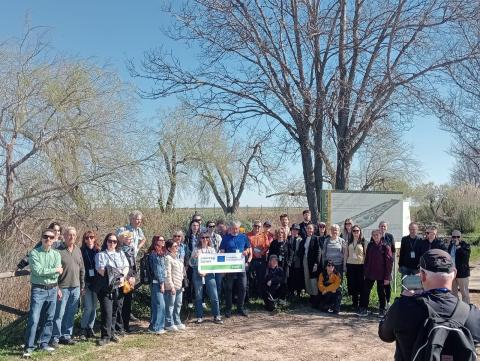
Rock the reed!
The RIWET group also visited La Ribera Consortium in Alzira, where Marta Romero told of the “Canya a la Canya” (Let’s rock the reed!) project, a collaboration between 13 municipalities to fight invasive species, restore riparian forest, stabilize riverbanks and expand the floodplain. Cooperation among local administrations, shared dedication to the river, and mutually beneficial actions makes this project a hit. This approach aligns with the concept of river basin-wide management. Due to the interconnected nature of river systems, local river projects can be affected by upstream activities or, conversely, can have downstream consequences. So, while municipalities have jurisdiction within their urban areas, successful river management requires governance mechanisms on river basin or sub-basin level.
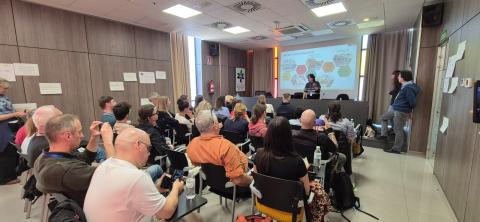
Next stop Finland
The EEW3 concluded with an interactive workshop to gather ideas, followed by a summary and proposals for the next EEW, which will take place in Finland in June 2025.

